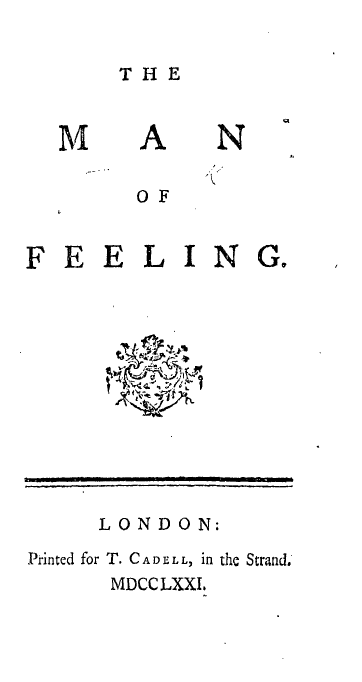Sentimental Frauds is a new article by
Simon Stern, Faculty of Law, University of Toronto. It is forthcoming in
Law and Social Inquiry. Here's the abstract:

This paper examines the class action filed against James Frey for his inaccuracies in A Million Little Pieces. Memoirs often include inaccuracies or elaborate fabrications - including demonstrably false claims about the author's background and experiences - and yet, until the suit against Frey, there had never been a lawsuit against a memoirist alleging fraud on this basis. I argue that when the book was promoted on “Oprah’s Book Club,” members of the club felt compelled to respond emotionally, and conceived of these responses as a form of testimony, so that Frey’s falsehoods made their testimony seem like perjury. To explore this idea, I turn to the eighteenth-century sentimental novel, which si milarly linked readers’ reactions to the author’s emotional authenticity. Fraud was an ongoing concern for sentimental novelists, some of whom used elaborate editorial to ploys to disavow responsibility for the text, while others populated their novels with fraudulent characters, intended as foils for the protagonist. I focus in particular on the examples of Henry Mackenzie's The Man of Feeling (1771), usually seen as the paradigmatic example of the genre, and Sarah Fielding's David Simple (1744), an early contribution to the genre, and an example that is unusual, for reasons explored in the article. Following a discussion of these novels, I conclude by considering the implications of the Frey case for future claims of literary fraud, and I compare this example with the suit against Laura Albert for fraud in transactions relating to her novel Sarah (1999), published under the name J.T. LeRoy.
milarly linked readers’ reactions to the author’s emotional authenticity. Fraud was an ongoing concern for sentimental novelists, some of whom used elaborate editorial to ploys to disavow responsibility for the text, while others populated their novels with fraudulent characters, intended as foils for the protagonist. I focus in particular on the examples of Henry Mackenzie's The Man of Feeling (1771), usually seen as the paradigmatic example of the genre, and Sarah Fielding's David Simple (1744), an early contribution to the genre, and an example that is unusual, for reasons explored in the article. Following a discussion of these novels, I conclude by considering the implications of the Frey case for future claims of literary fraud, and I compare this example with the suit against Laura Albert for fraud in transactions relating to her novel Sarah (1999), published under the name J.T. LeRoy.
Image credit, and here.

milarly linked readers’ reactions to the author’s emotional authenticity. Fraud was an ongoing concern for sentimental novelists, some of whom used elaborate editorial to ploys to disavow responsibility for the text, while others populated their novels with fraudulent characters, intended as foils for the protagonist. I focus in particular on the examples of Henry Mackenzie's The Man of Feeling (1771), usually seen as the paradigmatic example of the genre, and Sarah Fielding's David Simple (1744), an early contribution to the genre, and an example that is unusual, for reasons explored in the article. Following a discussion of these novels, I conclude by considering the implications of the Frey case for future claims of literary fraud, and I compare this example with the suit against Laura Albert for fraud in transactions relating to her novel Sarah (1999), published under the name J.T. LeRoy.